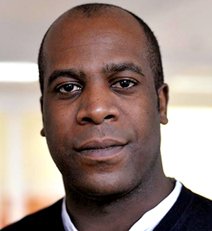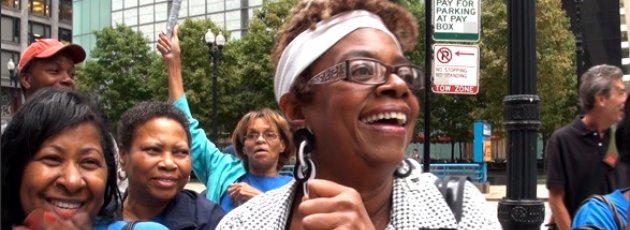- Home
- News & Blogs
- About Us
- What We Do
- Our Communities
- Info Centre
- Press
- Contact
- Archive 2019
- 2015 Elections: 11 new BME MP’s make history
- 70th Anniversary of the Partition of India
- Black Church Manifesto Questionnaire
- Brett Bailey: Exhibit B
- Briefing Paper: Ethnic Minorities in Politics and Public Life
- Civil Rights Leader Ratna Lachman dies
- ELLE Magazine: Young, Gifted, and Black
- External Jobs
- FeaturedVideo
- FeaturedVideo
- FeaturedVideo
- Gary Younge Book Sale
- George Osborne's budget increases racial disadvantage
- Goldsmiths Students' Union External Trustee
- International Commissioners condemn the appalling murder of Tyre Nichols
- Iqbal Wahhab OBE empowers Togo prisoners
- Job Vacancy: Head of Campaigns and Communications
- Media and Public Relations Officer for Jean Lambert MEP (full-time)
- Number 10 statement - race disparity unit
- Pathway to Success 2022
- Please donate £10 or more
- Rashan Charles had no Illegal Drugs
- Serena Williams: Black women should demand equal pay
- Thank you for your donation
- The Colour of Power 2021
- The Power of Poetry
- The UK election voter registration countdown begins now
- Volunteering roles at Community Alliance Lewisham (CAL)
Number Games: Does race have a place in the Big Society
 Rob Berkeley, Director of the Runnymede Trust, exclusively for Operation Black Vote about the impact of the Brixton uprisings, whether race equality has a place in the Big Society agenda.
Rob Berkeley, Director of the Runnymede Trust, exclusively for Operation Black Vote about the impact of the Brixton uprisings, whether race equality has a place in the Big Society agenda.
On April 11 30 years ago we saw the uprisings in Brixton. Thankfully those now seem to be distant days and the chances of another summer marked by racialised violence appear to be remote. What the uprisings made clear was that ignoring discrimination and social exclusion is not a recipe for building harmonious communities. We pride ourselves on the progress made since 1981, in terms of legislation and political representation, but is that progress as great as we would like? After all much has changed in the past 30 years, right?
In 1981, black youth unemployment was estimated at a shocking 55 per cent. Last year we saw unemployment among black 16-24 year olds reach 48 per cent. In 1981, there was an 18 point gap in achievement of 5 or more higher level CSEs or O-levels between white students and black Caribbean students. Last year there was an 18 point gap between the achievement of black Caribbean boys and white boys. In the mid 1980s, black Caribbean men made up 8 per cent of the prison population. Last year that figure had nearly doubled to 15 per cent of the prison population.
Are we sure that things are getting better? Despite these figures we like to tell ourselves that things have improved beyond recognition. However the inequalities persist. To paraphrase Professor Melissa Harris-Perry or Princeton University, who features in the film, Number Games: ‘Anyone who’s been to a rock concert or hip hop concert knows that people will do all they can to get over, under or around the barriers, and many do; it does not mean that the barriers no longer exist.’
Yet the myth that race inequalities have been solved, or are too complex to address, can provide cover for those who do not have the will or inclination to act. At the extreme, they argue that anyone who poses that racism might explain some inequalities is in fact the racist for drawing attention to difference. After all, they argue, we are all individuals and class is a much better indicator of disadvantage. Yet this analysis distracts us from addressing the real problems. Recent analysis of the English Longitudinal Youth Study has highlighted that of the year that African Caribbean boys are behind the average attainment level at age 14, only two months can be explained by controlling for class.
Race still matters, and makes a difference in the life chances of too many people in our society. But it doesn’t have to be this way. Runnymede has recently set out to open a debate about what it would take to end racism in a generation. 30 years on from the riots in Brixton, and with progress being at best patchy, we do not have the luxury of merely waiting for racism to dissipate; we need to know what steps we should be taking towards our goal right now.
That is why we made Number Games, a film about race equality in the Big Society.
I was initially confused by what to do with the Big Society concept. I am fighting my healthy scepticism turning into cynicism as the cuts start to kick in with towns and cities like Sheffield, Wycombe, Reading and Hounslow losing their race equality councils; while organisations like Peacemaker who did so much to rebuild community after the disturbances in Oldham disappear; and colleagues at organisations like Voice for Change England fight for their survival.
The very people who would be well-placed to capitalise on the rhetoric of Big Society to turn it into meaningful action to promote race equality, have fallen prey to the other part of the government’s plans – smaller government, and smaller government quickly.
Further, the idea of a Big Society seems to lack seriousness. No one appears to have any idea how you measure success, or how to deal with the problem of a growing accountability gap (e.g. arbitrary groups of citizens taking control of public services or local institutions), and there has been little or no discussion of what these reforms mean for equality. Those with the best networks appear to have been given a head start in the brave new world of local decision-making. This perhaps suggests why there has been more success in saving forests than saving Sure Start centres.
I am not against reform – after all the models that we were trying before do not seem to have been working, as the statistics noted above show. I am seriously concerned however that these reforms are a much greater risk for some than others. If you are not dependent on pubic services and can afford to opt out then these reforms are minor. If, like many from minority ethnic communities, you depend on public services then these reforms put your ability to keep hearth and home together in jeopardy.
I wanted to look for opportunities in the Big Society agenda to find ways to promote race equality and in particular to respond to the challenges of accountability, differential levels of participation, and ensuring that all voices are heard.
I couldn’t think of a better place to look than the United States. As we seem to have inherited much of this policy direction from our American cousins, I thought it would be useful to find out how people from marginalised communities there sought to ensure that issues of equality and racial justice are taken seriously. While the American context is very different, I felt that there may be some clues there about the steps that we take in the UK.
I look forward to the discussions provoked by the film and hope that it sparks some ideas. It is far from a final word and some of the responses posed in it are in need of further development. If we are to end racism in this generation - so that my successor is not stood here 60 years on from the Brixton uprisings pointing to similar patterns of inequality - then finding the tools to make change in this changed context seems to be a worthwhile exercise.
Rob Berkeley
Director of the Runnymede Trust
